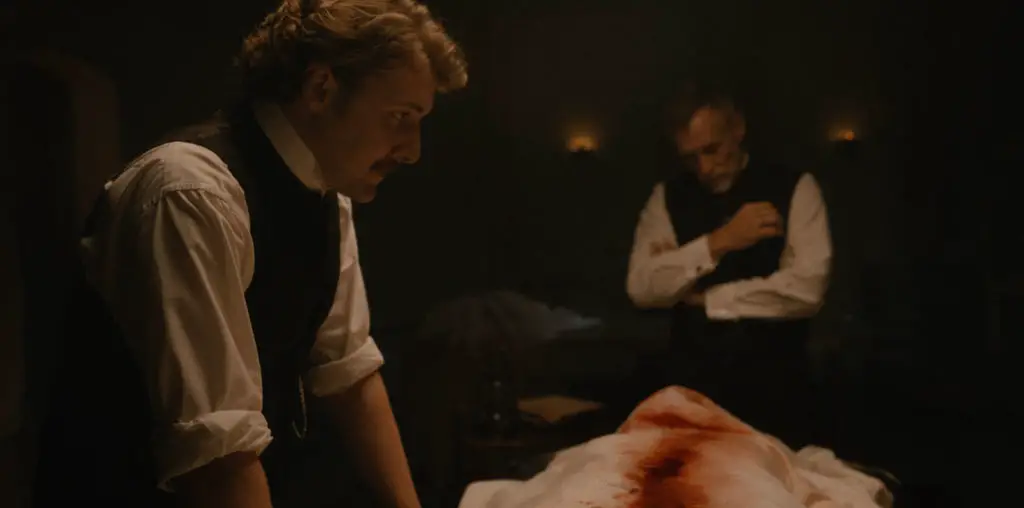
Franco Zeffirelli’s long and brilliant career bringing opera to the stage and screen, coupled with his friendship with Maria Callas make him the ideal director to set Callas Forever to life. His passion for music, unerring sense of style and gesture serve as benchmarks for others engaged in lifting mankind’s most encompassing art form off the page and into the hearts, minds and souls of opera lovers worldwide.
Never was his gift more apparent than in this homage to the late diva where the only truly memorable scenes occur in his sumptuous “fantasy” staging of the scenes from Carmen. Certainly the back story is important and the plot moves along, but the production’s main accomplishment is to whet the appetite for a Zeffirelli film version of Bizet’s perennial masterpiece, the blueprints for which have existed since 1995 whenever Carmen is performed at the Arena di Verona.
The script’s conceit (Zeffirelli and Martin Sherman) pits rock band manager and impresario Larry Kelly (Jeremy Irons who sails through the role with charm and panache) against the wiles and insecurity of his former charge, Callas (Fanny Ardant—callous and courageous on cue) as she contemplates a comeback, still licking her wounds from the unqualified failure of the Japanese tour.
Kelly convinces his backers that with modern lip-sync technology, the aging soprano can regain her glory by combining a much-admired recording for the music with her present-day looks and acting acumen to produce a sure-fire best seller. Using pre-recorded tracks also affords the film director Estaben Gomez (Manuel de Blas, replete with designer scarf) to engage svelte, sexy men to “sing” opposite (Gabriel Garko willing obliges), rather than the more usual heavy-set tenors. Not to be outdone by his Onasis-obsessed star, Kelly latches on to an attractive man of his own. Michael (Jay Rodan) is a hearing-impaired artist whose devotion to Kelly gets lost in the shuffle, but his talent rescues him in a way Callas’ can’t.
Eventually—with reporter/friend Sarah Keller (Joan Plowright, able as always) unabashedly putting in her two cents, adding balance to Callas’ famous outbursts: “I’ve missed my tantrums,” she admits—Carmen gets made and Tosca seems to be next. But second thoughts about artistic fraud and the desire to sing in the first person bring the film to its moral conclusion. Set in 1977, most certainly “seamless” lip-synching only works in the minds and bank accounts of the producers. Even the current state of that “art” can only fool those who suffer from willful blindness.
Zeffirelli knows this better than anyone. His opera films—necessarily—use pre-recorded music: How else to get the orchestra, chorus and soloists in time and in tune? His live-to-tape videos are another story: no lip-synching there (er, well except for the occasional resung edit, but the visual depth—of course—can’t hold a candle to film.
Callas’ real dilemma centred on quality: her own. In his Ode to his colleague, Zeffirelli reminds us all how fragile egos can be and the lengths artists (and their producers) will go to remain in the limelight. Duty done, much appreciated; now we can’t wait for another installment of what this master does best.

